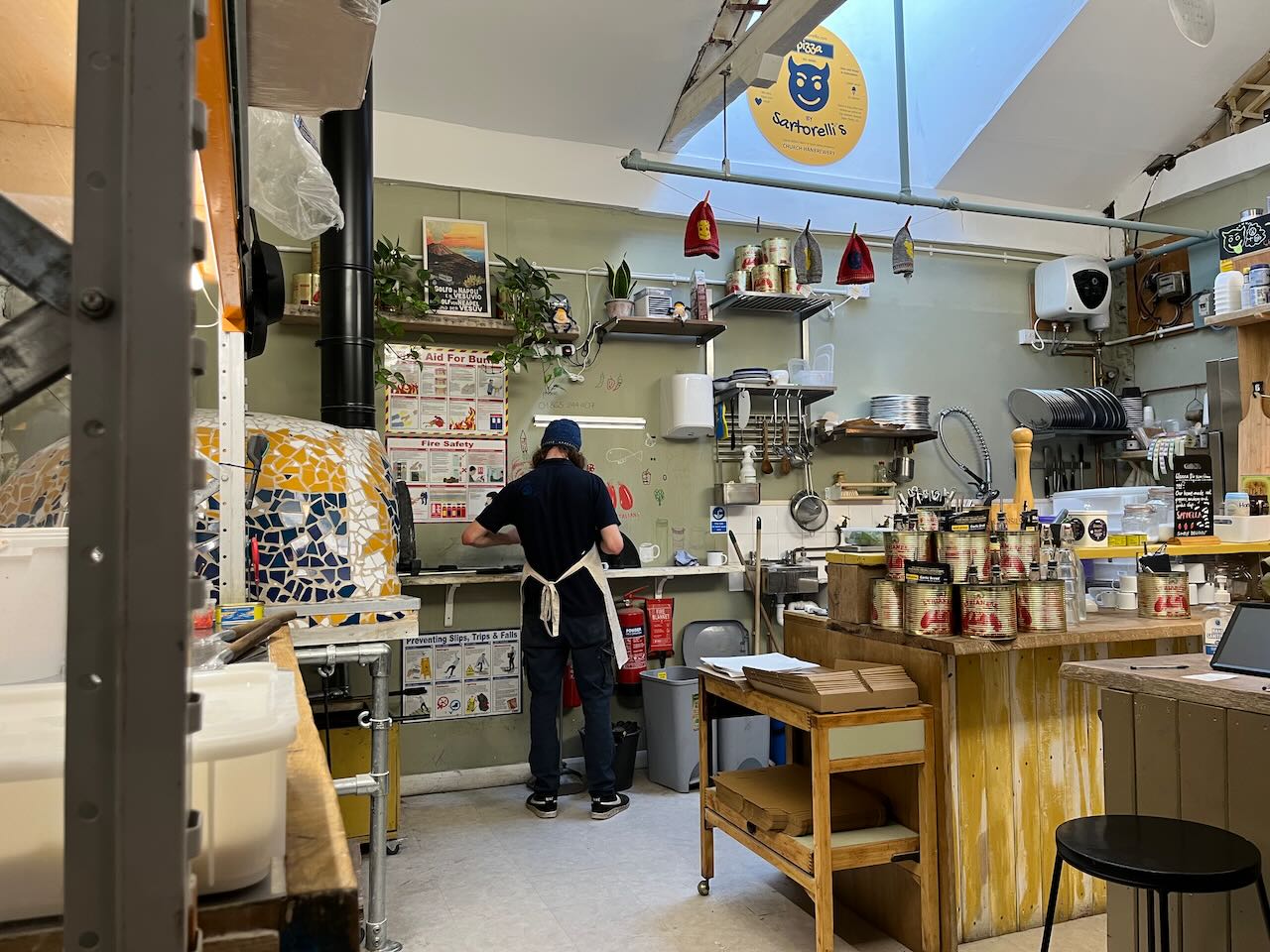Students in Iran are in an existential fight for freedom. At academic institutions such as Sharif University of Technology and Khajeh-Nasir Toosi University of Technology, Engineering and Science majors take to the streets calling for the end of the Islamic Republic and confront the Iranian military’s bullets and batons. While the campus and street protests may have been sparked by the Morality Police’s murder of Mahsa Jhina Amini for defying hijab law, they have expanded to a demand for the end of a system that perpetuates political and social oppression. Arian Amini declares, “Freedom in Iran begins with women and will be achieved by women.”
Iran has a history of political protest – the most recent of which in 2019 was instigated by economic mismanagement, tax cuts for elites, and rising gas prices – but all three Iranian Oxford undergraduates who spoke to Cherwell emphasize that this time is different. “Sanctions did not beat Mahsa (Jhina) Amini to death for ‘improper’ hijab,” says Arian, “The United States did not kill Sarina Esmailzadeh for enacting her right to protest. It was not the foreign powers of the West that slaughtered the protestors of Zahedan. This is the beginning of the end of the Islamic Republic.”
Anger over the death of Mahsa Jhina Amini has broadened to reflect ordinary Iranians’ outrage over declines in living conditions after Western economic sanctions, widespread political corruption, and economic mismanagement. The Oxford female undergraduate states, “I was not shocked by her death in the slightest.” Even the woman’s name represents the suppression of diversity perpetuated by the Islamic Republic: the Iranian state denies Kurdish people the right to use Kurdish names; Jhina went by Mahsa officially. The identification Iranian women feel with Jhina drives their activism: “When you hear Iranian female students shouting, ‘Death to the dictator,’ it’s because to them they might as well already be dead…. They are on a second life, if you will. The morality police didn’t kill me then, let them kill me now – but before they kill me, let me have my voice heard.”
But it is not just female students who clamor for the fall of Supreme Leader Ali Khamenei. The current protests racking the Islamic Republic span generations, social classes, and geographies of Iran. Oxford student Ali Khosravi relates the recognition by all Iranians of the precarious state of women’s rights in Iran to the wave of activism after the death of Sarah Everard in the United Kingdom. “Many women and men realized it could be them or their loved one. The usual trip in the van to the Morality Police office could be the end of us.” One of Ali’s female relatives of an older generation at home in Iran, who considers herself a devout Muslim, looks at the Ayatollahs (holy men) and is convinced that they are corrupt. He laughs recalling, “she says may God get rid of them in her religious way.”
The sentiment of Ali’s relative is shared by citizens who live in deeply religious cities such as Qom and Mashhad where women rip off their head scarves and burn them in street bonfires. Men and women across the nation shout, “Women, life, freedom,” as a rallying cry.
While all three Iranian Oxford undergraduates whole-heartedly endorse the nation-wide protests, they express the new fear with which they must contend every day that a loved one might inadvertently be caught in the crosshairs of state authority. As of October 21, the Guardian reports that military organizations have killed 250 people and arrested almost 12,500 since the street protests began. The female undergraduate cites a list of names on social media of people the military has murdered in the protests: “As much as you feel sadness about seeing that list grow, you also hope to God that you don’t recognize any of those names.”
The fight at universities across Iran is ongoing. This past Monday, October 24, students at Khaje-Nasir Toosi University of Technology booed Iranian government spokesman Ali Bahadori Jahromi and prevented him from delivering his speech. They chanted, “We don’t want a corrupt system, we don’t want a murderous guest.” At Hamadan University, students held a gathering in honor of their classmate Negin Abdolmaleki, 21, who was beaten to death by security forces on October 12.
The most violent of the university raids by the Revolutionary Guard (IRGC) occurred at Tehran’s prestigious Sharif University of Technology. On October 2, the Basij, a student-based paramilitary volunteer militia overseen by the IRGC, opened fire on protesters with rubber bullets and paintballs, critically wounding students. Ali explains the Basij “are hard-minded religious students with a branch at every university. They live in the dorms and function as an ideological arm of the state. Imagine, just for the sake of analogy, that Britain was a Catholic theocracy and the Catholic society at Oxford was the Basij.” At Sharif, there was blood on the ground, tear gas in the air, bullets flying, and shrieking cries for help, according to The New York Times. Professors approached the Basij to attempt a negotiation of a secure exit for students, and the paramilitary group brutally beat them. Sharif protesters continue to call for the release of Mohammad Nejad, a student of aerospace engineering currently held at a prison outside Tehran.
Watching the unrest her family and friends grapple with at home, the female undergraduate says, “I often feel as though I have done nothing to deserve my fate, nothing to deserve the privilege of sitting within my college walls or in cute coffee shops and complaining about how much work I have. My Iranian brothers and sisters are refusing to go to university and refusing to go to school. They are joining protests and screaming in the faces of revolutionary guards. What bravery. What astounding bravery.”
Protest also takes the form of male and female students lunching together at the university’s canteen counters, in open defiance of gender segregation rules. Two of Ali’s friends were invited to an “open conversation” with the cleric who is the representative of the Supreme Leader at academic institutions. The students were courageous enough to express their classmates’ grievances as well as criticize the Islamic republic’s suppression of human rights. The next day, Ali’s friends received threatening messages from the Ministry of Intelligence. “Clerics lure students into implicating themselves into a seditious act by expressing their desire for change… The Supreme Leader’s totalitarian regime won’t make any concessions of power. He won’t relax any restrictions because they feel that any concession will be the downfall of the regime.”
Yet, the Iranians’ fight for freedom transcends borders. The Oxford female undergraduate affirms that the Iranian students shout “because they want you to hear them. And they want to hear you.” She explains that an act as simple as posting an infographic can have damning consequences for Iranian students living abroad. “I stand to lose absolutely everything – to lose my ability to ever see my family again in Iran – by posting a single infographic on my story.”
The stark reality of this was made clear by a photo (featured below) taken by Donya Rad that Ali cites as being simultaneously a powerful symbol of the new normal and a shocking instance of the Islamic Republic’s repression of freedom. Rad’s image saw wide circulation on social media for the chord it strikes with Iranians of a casual instance of exceptional bravery; however, Rad has since been imprisoned for posting the image of her and a female friend eating breakfast in a café without hijabs.

But non-Iranian Oxford students can post infographics. They can display photos and videos on their social media of Iranian protesters’ ongoing struggle. They can write the list of names of the courageous Iranian students who have lost their lives in the fight for freedom.
Oxford students can also send motions to their Junior Common Rooms (JCR) and Middle Common Rooms (MCR) demanding that the governing bodies of their colleges release statements condemning the IRGC and Basji for attacking university administrators and students. Furthermore, if the JCRs and MCRs have a charity fund, they can donate to organizations such as Iranian & Kurdish Women’s Rights (IKWRO) and the Abdorrahman Boroumand Center that bring public attention to human rights abuses in Iran.
There are also material political actions that British students can take to support the Iranian students’ cause. Arian advocates that voters write letters to their local MPs asking them to take a stand against the Iranian regime. The female undergraduate laments: “It is utterly disgraceful that the UK government, Liz Truss, the foreign secretary James Cleverly, have said nothing about the Iranian protesters. They have not even tried to demonstrate an illusion that they care. How dare the British government say nothing. Truly hurtful. This is not a partisan issue. This is human rights. Ask the leaders of your party why are you saying nothing? I’ll beg them on my knees for their fake thoughts and prayers rather than silence.” In London, there is an Islamic center funded by the Islamic Republic of Iran run by a cleric appointed by the Supreme Leader. Ali argues, “We must close that down. There is no need for a brutal dictator to have a representative in this country.”
All three Iranian Oxford undergraduates maintain that their family and friends in Iran fight for the heart of their nation. An act as simple as a male student having lunch with a female student is a subversion of the political and social system in place for almost a quarter of a century. The privilege to learn in a free and inclusive environment that Oxford students take for granted is at the heart of the urgent struggle in Iran. On the frontlines of a battle for human rights, this army of Iranian citizens is young and old, rich and poor, liberal and conservative. Arian makes it clear: “This is an Iran where women and men are willing to die to give their brothers and sisters freedom.”





